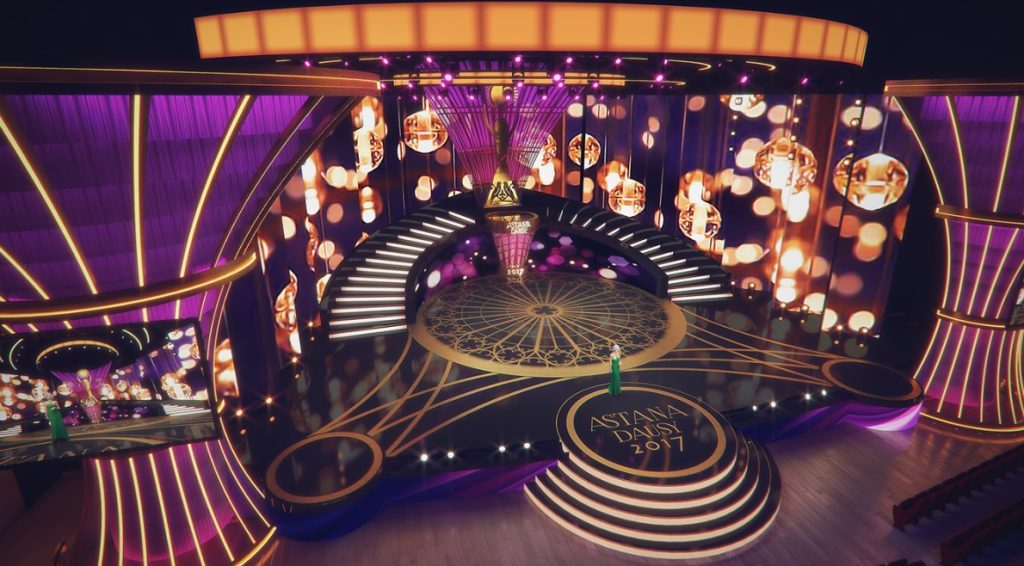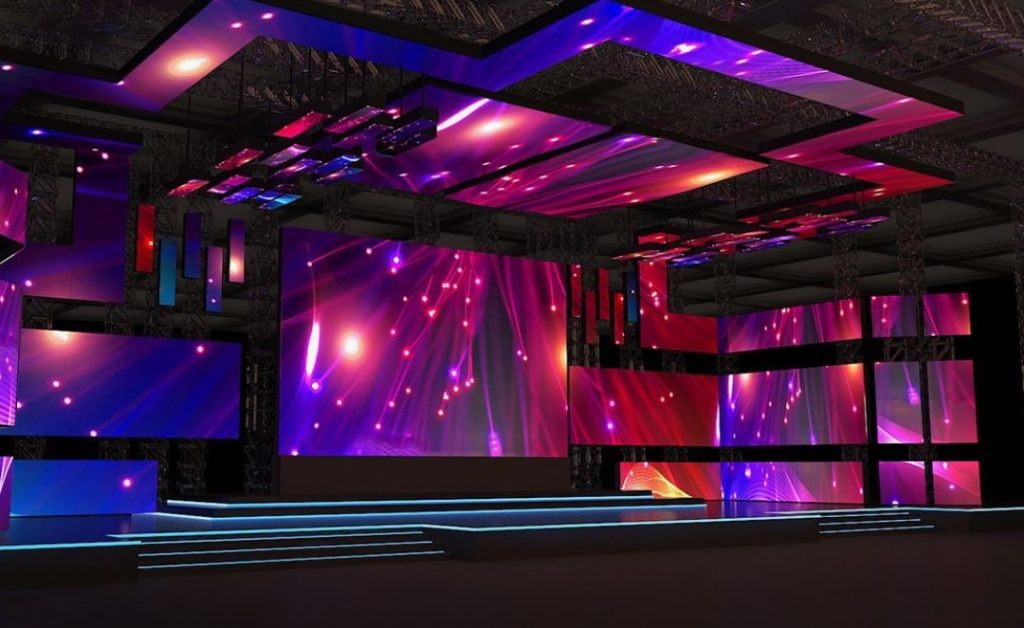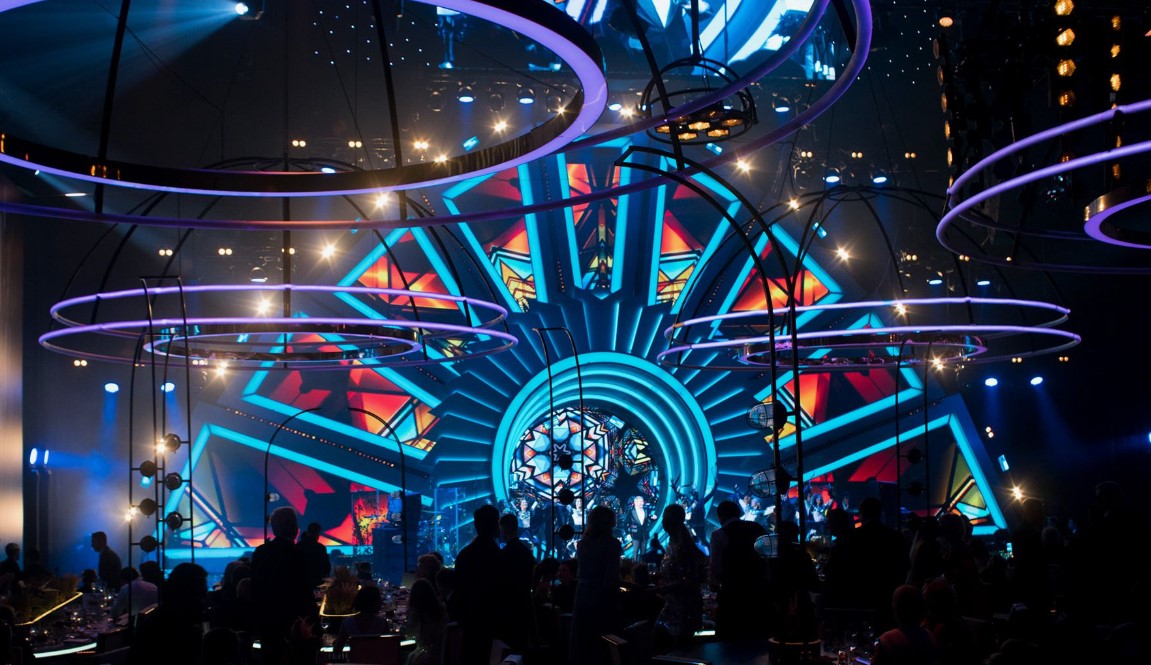In the digital era, the success of an event is no longer solely dependent on the quality of the content presented. The overall experience, engagement, and interactivity now play pivotal roles in determining the impact and memorability of events. Interactive technology has become a cornerstone of modern event planning, transforming how events are conceptualized, executed, and experienced. This article explores the profound role of interactive technology in enhancing event experiences, supported by research and practical applications.
The transformation of event experiences in the digital age has set a new benchmark for engagement and interactivity. Attendees today at corporate events expect dynamic environments that offer immersive, interactive, and personalized experiences. Interactive technology meets these expectations by providing tools that elevate engagement, foster interactivity, and personalize the experience.
Interactive technology refers to digital tools and platforms that enable bidirectional interaction between users and content. Unlike traditional passive media, interactive technology requires user engagement, thus providing a more personalized and engaging experience. Key examples include virtual reality (VR), augmented reality (AR), interactive displays, mobile apps, and live polling systems.
The Evolution of Event Experiences
From Traditional to Technological
Historically, events were heavily reliant on manual processes and physical interactions. Registration was done manually, feedback was collected through printed forms, and presentations were static. The digital revolution introduced online registration, digital marketing, and multimedia presentations, setting the stage for the integration of advanced interactive technologies.

Key Technological Advancements in Events
- Digital Registration and Ticketing: Moving from manual to online registration systems has streamlined processes, making them more efficient and user-friendly.
- Event Mobile Applications: Custom mobile apps for events provide attendees with schedules, speaker details, and networking opportunities, enhancing the overall event experience.
- Virtual and Hybrid Event Formats: The COVID-19 pandemic accelerated the adoption of virtual and hybrid events, allowing global participation and breaking geographical barriers.
Enhancing Engagement Through Interactive Technology
Virtual Reality (VR) and Augmented Reality (AR)
VR and AR technologies are transforming event experiences by creating immersive and interactive environments. VR offers fully immersive 3D experiences, while AR overlays digital information onto the physical world, enriching real-world environments.
At trade shows, AR can be used to provide interactive product demonstrations. Attendees can use AR-enabled devices to view detailed product information and visuals, enhancing their understanding and engagement.
Research from Stanford University indicates that VR experiences can significantly enhance user engagement and memory retention compared to traditional methods.
Interactive Displays and Touchscreens
Interactive displays and touchscreens provide hands-on engagement, allowing attendees to interact directly with content. These tools can be used for interactive maps, social media walls, and product showcases.
An event can feature interactive maps that allow attendees to explore different areas, receive real-time updates, and navigate the venue. Touchscreens at booths can provide detailed product information and multimedia presentations.
Studies show that interactive displays increase attendee engagement and satisfaction by providing a more engaging and informative experience.
Live Polling and Q&A Sessions
Interactive technology facilitates real-time engagement during presentations through live polling and Q&A sessions. This not only increases participation but also provides valuable insights for presenters.
During a keynote speech, live polling can be used to gather immediate feedback from the audience. Attendees can submit questions via an app, and the most popular ones can be addressed in real-time.
A study by the University of Rochester found that live polling can increase audience engagement by up to 70%, making presentations more interactive and impactful.

Gamification
Incorporating gamification into events can enhance attendee engagement by adding elements of fun and competition. This can be achieved through interactive games, challenges, and reward systems.
A conference can include a scavenger hunt where attendees earn points by visiting different booths and attending sessions. Leaderboards displayed on screens can track progress, with top participants receiving prizes.
Research from the University of Waterloo highlights that gamification can improve user engagement and motivation, making events more enjoyable and memorable.
Practical Applications and Benefits
Networking and Social Interaction
Interactive technology facilitates networking by connecting attendees through digital platforms. Event apps often include features for messaging, meeting scheduling, and social media integration, making it easier for attendees to connect.
An event app with a matchmaking feature can suggest connections based on interests and professional backgrounds. Attendees can schedule meetings and chat directly through the app.
Studies indicate that networking apps can increase attendee interaction by 50%, fostering meaningful connections and collaborations.
Personalized Experiences
Interactive technology allows for the creation of personalized experiences tailored to individual preferences and behaviors. This leads to higher satisfaction and engagement levels.
Using data collected from event apps and registration forms, organizers can send personalized recommendations for sessions, booths, and activities to attendees. Personalized agendas and reminders enhance the overall experience.
Research by McKinsey & Company shows that personalization can increase event engagement by 20%, providing a more tailored and satisfying experience for attendees.
Data Collection and Analytics
Interactive technology provides valuable data that can be used to analyze attendee behavior and improve future events. This includes data from registrations, app interactions, and feedback forms.
Event organizers can use analytics to understand which sessions were most popular, how attendees interacted with different elements, and what improvements can be made for future events. This data-driven approach leads to better planning and execution.
A study by Gartner highlights that data analytics can improve event planning and execution by 30%, leading to more successful and impactful events.
Challenges and Considerations
Technical Issues
One of the main challenges with interactive technology is the potential for technical issues. Reliable internet connections, device compatibility, and software glitches can impact the attendee experience. Conduct thorough testing before the event, provide technical support on-site, and have backup plans in place to address potential issues promptly.
Privacy and Security
Collecting and storing attendee data comes with privacy and security concerns. It is crucial to ensure that data is handled responsibly and securely. Implement robust data protection measures, inform attendees about data usage policies, and comply with relevant regulations such as GDPR.
Cost and Accessibility
While interactive technology can enhance event experiences, it can also be costly to implement. Additionally, not all attendees may have access to the necessary devices or be comfortable using new technologies. Evaluate the cost-benefit ratio and prioritize technologies that offer the most value. Provide training and support to help attendees make the most of the interactive features.
Future Trends in Interactive Event Technology
Artificial Intelligence (AI) and Machine Learning
AI and machine learning are set to play a significant role in the future of interactive event technology. These technologies can offer advanced personalization, predictive analytics, and intelligent matchmaking.
AI-powered chatbots can provide instant assistance to attendees, answer questions, and guide them through the event. Machine learning algorithms can analyze attendee behavior to offer personalized recommendations.
Research by PwC indicates that AI can improve event personalization and efficiency by up to 40%, making events more engaging and streamlined.
Mixed Reality
The future of event experiences may see a blend of VR, AR, and real-world elements, known as mixed reality. This can create even more immersive and interactive environments.
An event can have a mixed reality experience where attendees interact with both physical objects and digital elements seamlessly. This could be used for interactive art installations, product demonstrations, or educational exhibits.
A study by Microsoft suggests that mixed reality can enhance learning and engagement by up to 50%, providing a more immersive and impactful experience.
Blockchain for Secure Transactions
Blockchain technology can provide secure and transparent transactions for ticketing, payments, and data sharing. This can enhance trust and security in event management.
Using blockchain for ticket sales can prevent fraud and ensure that tickets are authentic and transferable. Attendees can also use blockchain-based wallets for secure transactions at the event.
Research by Deloitte highlights that blockchain can improve transaction security and transparency by up to 30%, making events more secure and trustworthy.
Conclusion
Interactive technology has fundamentally transformed the way events are experienced, offering unprecedented levels of engagement, personalization, and data-driven insights. As technology continues to advance, the potential for enhancing event experiences will only grow. By embracing these innovations, event organizers can create memorable and impactful experiences that resonate with attendees long after the event is over.
Incorporating interactive technology into events is not just a trend but a necessity in the modern era. It provides the tools needed to meet the ever-growing expectations of attendees and deliver experiences that are engaging, educational, and enjoyable. The future of events lies in the seamless integration of technology, making every event an interactive and unforgettable journey.

Skydiver, maker, audiophile, Vignelli fan and TDC honorary member. Working at the nexus of simplicity and mathematics to craft experiences both online and in real life. I sometimes make random things with friends.
